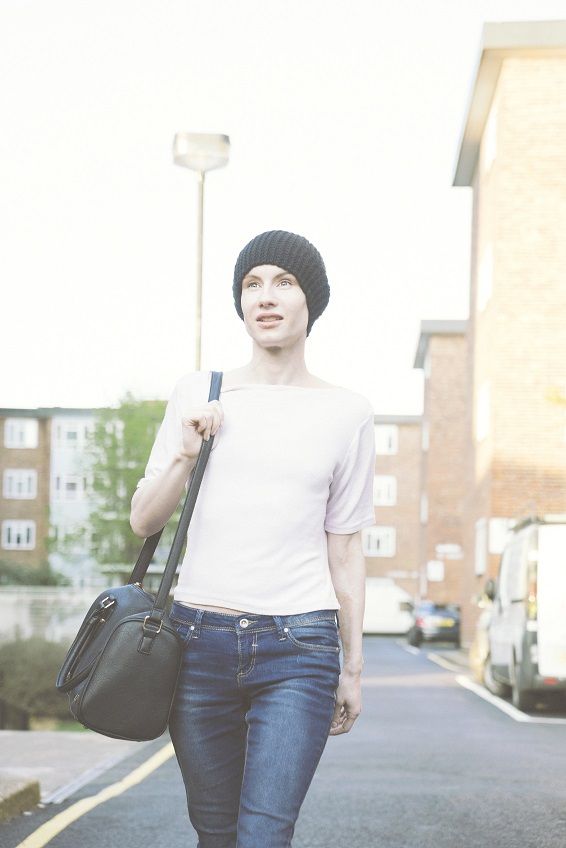In 1989, Denmark became the first country in the world to legally recognise same-sex unions – a brave new step for LGBTI communities across the world.
And then in 2014, it became the first European country to permit a legal change of gender without the need for a medical expert statement.
But despite its reputation as a pioneer, Denmark still has a long way to go before it can call itself a champion of transgender people’s human rights, claims Amnesty International.
Some of the screenings and observations that transgender people must currently undergo to be approved for hormone therapy, it claims, are “outdated and offensive”, “long-standing and humiliating” and certainly unbecoming of a nation that takes such pride in its progressiveness.
A treatment monopoly
Amnesty International is so concerned with the violation of transgender people’s rights in Denmark that it started a campaign on March 1, #sygtsystem (the sick system), to petition the government into change.
The troubles began in December 2014, just three months after the historic law change, when the National Board of Health in Denmark made changes to the guidelines for the treatment of transgender people in Denmark.
This gave the Sexological Clinic at Rigshospitalet in Copenhagen a monopoly on treating transgender people, thus prohibiting them from choosing a gynaecologist of their choice, who could then screen them, approve them and administer hormones.
No appeals process
Today, transgender people are at the mercy of the Sexological Clinic where they are subjected, argues Amnesty International, to disempowering studies that can take years.
And should they not be approved for hormone treatment or surgery, there is no appeals process, which can often lead to them looking for treatment abroad.
“Transgender people are met with long, outdated and offensive clinical screenings and observations,” Pernille Bækkel Jensen from Amnesty International told the Copenhagen Post Weekly.
“They started getting into contact with Amnesty when the gynaecologists lost their authorisation to provide them with hormones – this was the beginning of the campaign and briefing process.”
As of mid-March, Amnesty International had received 1,938 letters signatures and 304 personal comments to support a campaign (which will continue until August) to break the monopoly and withdraw transsexuality from the Danish National Board of Health’s list of psychiatric diagnosis.
The latter means that transgender people have to be diagnosed with the psychiatric diagnosis ‘gender identity disorder’ before they get approval for hormone therapy.
Changing the law could prove difficult as all 193 members of the World Health Organization would need to reach a consensus.
Speaking out
In the meantime, increasing numbers of transgender people are self-medicating, according to Michael Lützhøft Hansen, a gynaecologist with 15 years’ experience screening and treating transgender people.
“I feel bound hand and foot because I reject many transgender patients and see how they resort to self-medication,” he told Information newspaper.
While Linda Thor Pedersen, a spokesperson on transgender issues at LGBT Denmark, told Videnskab in early 2016 that some transgender people at the clinic “are so worn down by all the interviews that they cannot take it anymore”.
In the same article, Tobias Raun, an associate professor at Roskilde University, said that transgender people are exposed to “extreme psychological pressure having to bear so many years of uncertainty before they are allowed to undergo surgeries”.
Criticism rejected
However, Professor Annamaria Giraldi, one of the head doctors at the Sexological Clinic, contends that the criticism is unfounded.
“We really regret that this is how some people feel. The treatments in the clinic are professional, and I do not recognise that they are derogatory,” he told Information.
“On the contrary, it is not in our interest to make people stop being transgender. We would like to help as much as possible.”
And Rikke Kildevæld Simonsen, a psychologist at the Sexology Clinic, told Videnskab that the extent of the evaluation process made sense as some “drop out of the treatment, perhaps because they are having doubts”.
Certainly the average time it takes for a transgender person to get approval has shortened dramatically.
A survey of 104 individuals who underwent sex reassignment surgeries in Denmark between 1978 and 2008 found that the average wait for male-female transgenders was eight years and female-male transgenders six years. In recent years, the average wait has fallen to one and a half to two years.
Damning findings
Earlier this year, Amnesty published a Danish briefing, ‘The access to healthcare for transgender people in Denmark’, as a continuation of the 2014 international report ‘The states decide who I am – lack of recognition for transgender people’.
The briefing includes findings gathered from interviewing 10 percent of the transgender people currently being treated at the Sexological Clinic, and it details how the psychiatric diagnosis of ‘transsexulism’ and the screenings and observations violates transgender people’s rights.
The contribution of transgender people to the briefing, as well as LGBTI-organisations, cannot be underestimated according to Amnesty International’s Jensen.
“The entire campaign, briefing and impact objectives are developed with LGBTI-organisations and rights holders themselves – they participate in all the meetings we have with the authorities and they have been part of the team while we developed our policy objectives,” she said.
“They have been part of developing the campaign identity: they were interviewed for the briefing, and they have had an active role in educating Amnesty activists, giving interviews for media outlets and being important ambassadors of the campaign that will run until the Copenhagen Pride in August 2016.”












